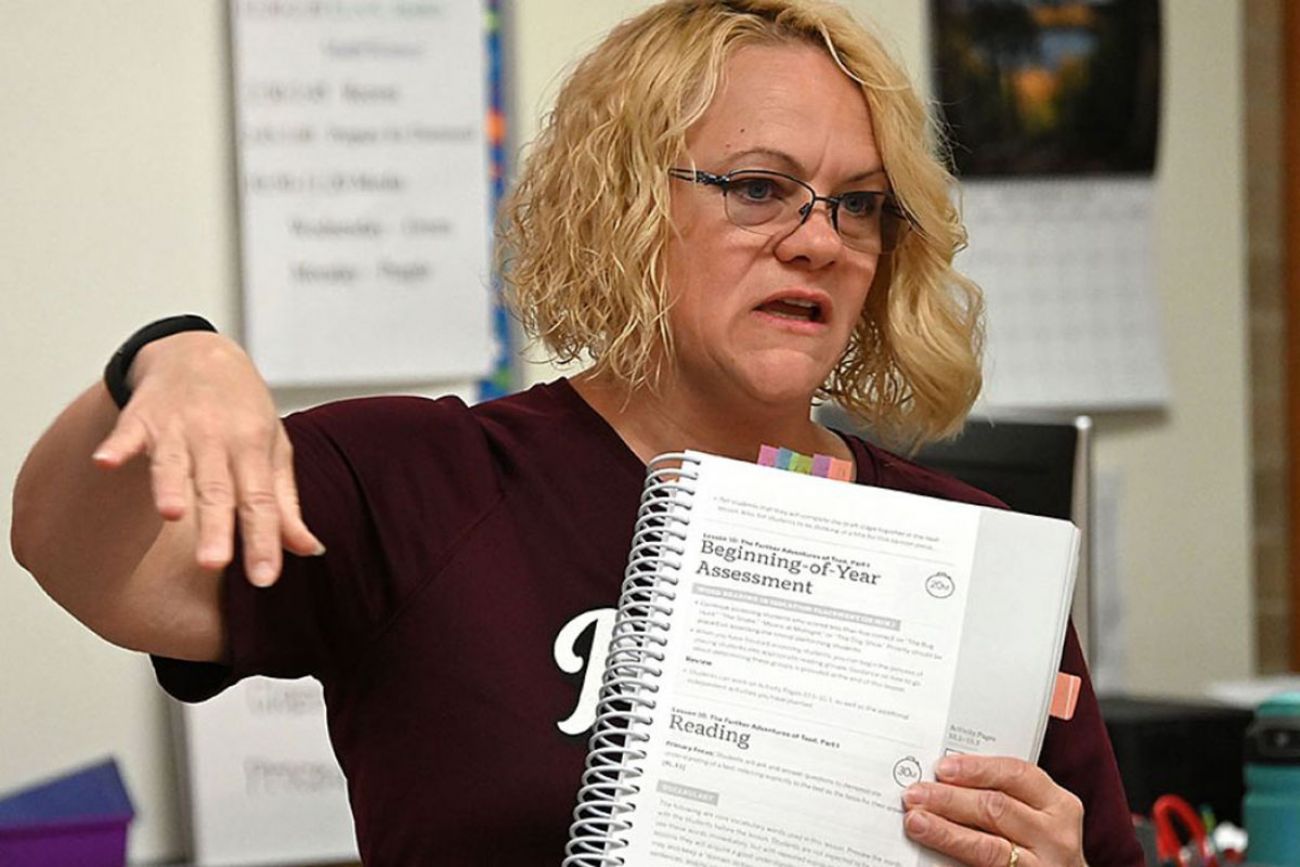Michigan GOP bill: Schools must post curriculum, books, assignments

Feb. 15: Michigan lawmakers skirmish over Republican school transparency bill
Michigan’s public schools would be required to publicly list all curriculum, books, literature, writing assignments and planned field trips before the school year begins, under a bill introduced by Republican members of the Michigan House on Wednesday.
House Bill 5722 is similar to school curriculum transparency bills introduced in other states. Such bills have proliferated among conservative lawmakers in the wake of objections by some parents and politicians that schools were teaching critical race theory, an academic framework that examines the lingering effects of slavery and ingrained culture of racism. Critical race theory is generally a college-level framework, and it is not taught in Michigan schools.
In recent months, CRT concerns have morphed into broader objections to discussions of race or diversity in the classroom, with campaigns in some school districts and states to remove books from library shelves and class reading lists.
Related:
- Survey: 1-in-5 Michigan teachers and staff said they will soon leave field
- Amid snowmageddon, Michigan schools are out of snow days: What to know
- Michigan districts are running out of snow days. What happens now?
- Michigan bill would let college students lead classes to curb teacher shortage
The Michigan bill is sponsored by 11 GOP House members, including Matt Maddock, of Milford, the husband of state Republican Party Co-Chair Meshawn Maddock, and Pamela Hornberger, of Chesterfield Township, the chair of the House Education Committee. The bill was referred to the House Education Committee.
Hornberger told Bridge Michigan Wednesday that the bill focuses on school transparency, particularly around curriculum. But some school leaders reached by Bridge initially expressed puzzlement over the need for the bill when much of the information is already available to parents.
The bill, less than 200 words long, would mandate that school districts, by the first day of school, must make public:
- Curriculum approved by the district for each school operated by the district.
- Each class offered to pupils of the district as part of the curriculum.
- Textbooks, literature, research projects, writing assignments and field trips that are part of the curriculum.
- Extracurricular activities being implemented during designated school hours or under the authority of the school.
- A list of each certificated teacher or other individual authorized under state law to teach in this state who is charged with implementing the curriculum.
- School districts that don’t comply would lose 5 percent of state funding.
It wasn’t immediately clear how much of the required information is already available publicly, on district websites or in class syllabi.
In a number of other states including Texas, Kansas, Colorado, Utah, Iowa, Indiana and Ohio, lawmakers have introduced or enacted similar proposals.
Wednesday’s bill introduction follows earlier GOP efforts to limit the teaching of racism in Michigan schools. One bill introduced last year sought to ban schools from teaching that racism and sexism are inherent. That bill passed the House but stalled in the Senate.
Hornberger said she has heard from parents who have struggled to get information on curriculum, textbooks and classroom assignments from school districts. Some, she said, had filed Freedom of Information Act requests to obtain information, and faced large bills from schools for copying and labor.
“Parents want more information, and a lot of districts are pushing back,” said Hornberger, a former art teacher in the East China School District in St. Clair County. “I think there should be as much transparency as possible in education. It makes people comfortable (when they) get their questions answered.”
Democrats on the House Education Committee declined to comment Wednesday, saying through a caucus spokesperson they needed time to review the newly introduced legislation The Michigan Department of Education also declined comment.
Robert McCann, executive director of the K-12 Alliance of Michigan, a school advocacy group, said he didn’t believe the proposed law is necessary.
“These are all policies and communications planned and agreed upon by administrators, elected school boards and their communities,” McCann said. “It's a process that's worked well for generations in Michigan and I'm unclear why creating mandates at the state level would either be needed or helpful.”
Hornberger acknowledged that some parents may want to use the proposed law to “find gotcha moments” in curriculum that show schools are teaching something those parents may find offensive.
Some individual teachers may “go rogue” and offer a lesson that is objectionable, Hornberger said, but that’s unlikely to show up in district-approved curriculum or textbooks.
“It’s not always easy to explain to parents that … some rogue class lesson they saw on Facebook isn’t curriculum,” Hornberger said.
The former educator said more transparency may allow parents to see that “most curriculum is non-controversial.”
Casandra Ulbrich, a Democrat who is president of the state Board of Education, was cautious in her initial perspective of the bill.
“Generally, I do not support fining schools,” Ulbrich said upon learning of the GOP proposal. “I am assuming that the introduction of this bill is to start a conversation, and I look forward to hearing more.”
Board Vice President Pamela Pugh, also a Democrat, said she is concerned that the bill will lead to censorship of curricula, intimidation of teachers and watering down of education.
“There’s more than meets the eye at the root of these divisive, manufactured, chaotic bills that are being proposed” across the country as part of a national playbook, Pugh said. “It’s scare tactics and intimidation meant to cause mass chaos, mass confusion and disruption to our education system.”
Ingrid Fournier, a fifth-grade teacher in Ludington Public Schools, said she was “frightened” by the bill. “My initial gut reaction is that it’s more hoops to jump through,” she told Bridge.
“We’ve been trained. Our best interest is your child’s success. We’re not the enemy,” Fournier said.
“Where is the trust? Just trust us.”
Michigan Education Watch
Michigan Education Watch is made possible by generous financial support from:
Subscribe to Michigan Education Watch
See what new members are saying about why they donated to Bridge Michigan:
- “In order for this information to be accurate and unbiased it must be underwritten by its readers, not by special interests.” - Larry S.
- “Not many other media sources report on the topics Bridge does.” - Susan B.
- “Your journalism is outstanding and rare these days.” - Mark S.
If you want to ensure the future of nonpartisan, nonprofit Michigan journalism, please become a member today. You, too, will be asked why you donated and maybe we'll feature your quote next time!






